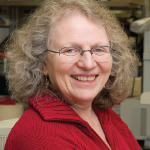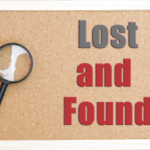Betty Diamond, MD, Recognized as Distinguished Fellow by American Association of Immunologists
 At its annual meeting in May in San Diego, the American Association of Immunologists (AAI) recognized Betty Diamond, MD, as a distinguished fellow. Dr. Diamond is professor and head of the Center for Autoimmune, Musculoskeletal and Hematopoietic Diseases at the Feinstein Institutes for Medical Research, Manhasset, N.Y. She is also professor of medicine and molecular medicine at the Donald and Barbara Zucker School of Medicine at Hofstra/Northwell, Hempstead, N.Y. In addition to being an active AAI member and once serving as president, she has also served on the ACR’s board of directors.
At its annual meeting in May in San Diego, the American Association of Immunologists (AAI) recognized Betty Diamond, MD, as a distinguished fellow. Dr. Diamond is professor and head of the Center for Autoimmune, Musculoskeletal and Hematopoietic Diseases at the Feinstein Institutes for Medical Research, Manhasset, N.Y. She is also professor of medicine and molecular medicine at the Donald and Barbara Zucker School of Medicine at Hofstra/Northwell, Hempstead, N.Y. In addition to being an active AAI member and once serving as president, she has also served on the ACR’s board of directors.
Following her undergraduate studies in art history and classics at Radcliffe College, Dr. Diamond obtained her medical degree from Harvard Medical School, Boston. It was during her postdoctoral studies at the Albert Einstein College of Medicine, The Bronx, N.Y., that one of her mentors, Donald M. Marcus, MD, now professor emeritus at Baylor College of Medicine, Houston, steered her to rheumatology. “Come to rheumatology clinic on Wednesday mornings—you’ll have fun, and there are interesting clinical problems,” she recalls him saying.
Autoimmune diseases, especially lupus, drew her to rheumatology. “I was amazed by lupus,” she says, “because it represented to me the [cartoonist Walt Kelly’s] character Pogo stating, ‘we have met the enemy, and he is us.’” She was also drawn to the specialty because 90% of those diagnosed with lupus are younger women. Her goal was to delve into the cellular mechanisms of the disease.
Dr. Diamond’s laboratory work currently focuses on DNA-reactive B cells, particularly the alterations that lead to their survival and activation. Her research continues to push known boundaries, including research into impaired cognition in lupus.
Simpler Is Better
Dr. Diamond was encouraged by Dr. Marcus and another mentor, Matthew Scharff, MD, a professor at the Albert Einstein College of Medicine. She now directs the MD/PhD Program at Hofstra/Northwell, and it’s a role she relishes. “Whenever someone who is smart and motivated comes to the lab and wants to study an aspect of lupus, I tell them to go for it,” she says. “It means that I’m always running alongside, trying to learn new things, but they turn out to be very interesting.”
The lab’s studies on C1q in lupus and hormonal regulation of B cell maturation and differentiation are two examples of those fruitful pursuits.1
She is also motivated by a quest to find therapies that are less immunosuppressive and more affordable. “When a third of lupus patients are dying of infection, we don’t need more immunosuppressive therapies,” she says. Affordable, low-tech assays would also be a way to investigate the differences in disease based on race and ethnicity. “This is almost the opposite of how science functions, which is ‘fancier is better,’” she says. “But to my mind, simpler is better.”



